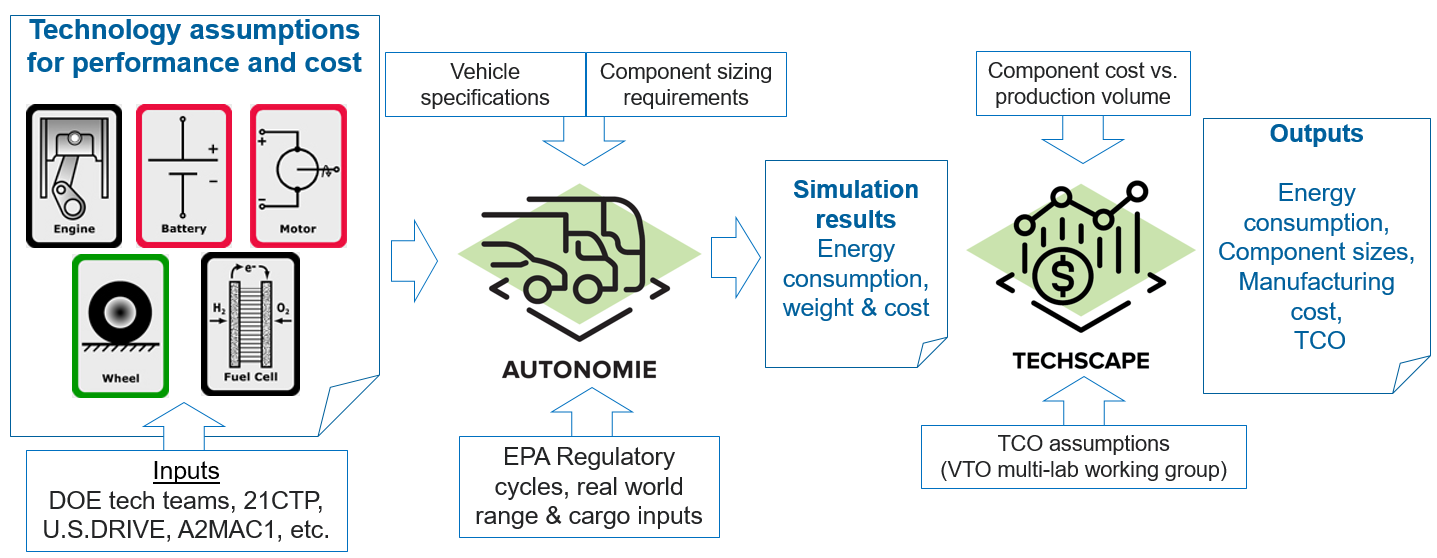U.S. DOE VTO/HFTO R&D Benefits
Published: 2024 January
Quantify the impact of U.S. Department of Energy R&D on vehicle energy consumption and cost from light- to heavy-duty classes.
For more than 20 years, the Argonne National Laboratory Vehicle & Mobility Systems (VMS) Department has regularly evaluated the impact of U.S. Department of Energy (DOE) Vehicle Technologies Office (VTO) and Hydrogen and Fuel Cell Technologies Office (HFTO) R&D on vehicle energy consumption and cost using Autonomie, Argonne’s state-of-the-art vehicle energy consumption, performance, and cost system simulation tool. The number of vehicles considered in the report has grown over the years to become one of the largest and most complete studies, including:
- Five timeframes (current to 2050);
- More than 30 vehicle classes and applications, from light-duty (10) to medium- and heavy-duty (20+);
- Six powertrain configurations, including conventional, start-stop, hybrid electric vehicles (HEVs), plug-in hybrid electric vehicles (PHEVs), battery electric vehicles (BEVs), and fuel cell electric vehicles (FCEVs);
- Five fuels (gasoline, diesel, natural gas, hydrogen, electricity); and
- Two technology uncertainties (low and high technology scenarios).
Assumptions (e.g., efficiency, $/kilowatt hour, etc.), individual vehicle information (e.g.,power, energy, weight, cost, etc.), and results (e.g., energy consumption, manufacturer’s suggested retail price [MSRP], total cost of ownership [TCO], etc.) are provided in individual reports as indicated below.

Read the 2023 DOE VTO/HFTO Transportation Technologies Analysis:
- Full report
- Light-duty vehicles (assumptions, vehicle results, techno-economic analysis with TechScape (to be released))
- Medium- and heavy-duty vehicles (assumptions, vehicle results, techno-economic analysis with TechScape (to be released))
Citation: Ehsan Sabri Islam, Daniela Nieto Prada, Ram Vijayagopal, Charbel Mansour, Paul Phillips, Namdoo Kim, Michel Alhajjar, Aymeric Rousseau. “Detailed Simulation Study to Evaluate Future Transportation Decarbonization Potential”, Report to the US Department of Energy, Contract ANL/TAPS-23/3, October 2023
You can also find previous reports and analysis here.